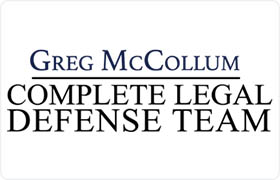Charleston Afb Misdemeanor Lawyer, South Carolina
Sponsored Law Firm
-
 x
x

Click For More Info:
-
Greg McCollum Complete Legal Defense Team
1012 38th Avenue North Suite 202 Myrtle Beach, SC 29577» view mapCriminal Defence Law Complete Legal Defense Team
Our goal at the Complete Legal Defense Team is to examine the facts and circumstances completely and help our clients.
800-634-0690
Not enough matches for Charleston Afb Misdemeanor lawyer.
Below are all Charleston Afb Criminal lawyers.
Ashley Ameika
✓ VERIFIEDAccident & Injury, Criminal, Divorce & Family Law, Estate
Ashley Ameika, Esq. received her Bachelor's Degree from the University of Notre Dame where she was consistently on Dean's List and graduated cum laude... (more)
Nicholas J. Clekis
✓ VERIFIEDAccident & Injury, Criminal, Traffic, Nursing Home, Elder Law
Nicholas Clekis focuses his practice in the areas of Personal Injury, Workmens’ Compensation, Medical Malpractice, Litigation, Criminal Defense and ... (more)
Michael Sean O'Neal
Landlord-Tenant, Child Custody, Criminal, Discrimination
Status: In Good Standing
FREE CONSULTATION
CONTACTHaley Rae Agostas
Wrongful Termination, Divorce & Family Law, Misdemeanor, Criminal
Status: In Good Standing
Karen Marie DeJong
Lawsuit & Dispute, Wills & Probate, Misdemeanor, Business
Status: In Good Standing
Adam Mlynarczyk
Litigation, Wills, Criminal, Personal Injury
Status: In Good Standing Licensed: 23 Years
 Greg McCollum Myrtle Beach, SC
Greg McCollum Myrtle Beach, SC AboutGreg McCollum Complete Legal Defense Team
AboutGreg McCollum Complete Legal Defense Team Practice AreasExpertise
Practice AreasExpertise



